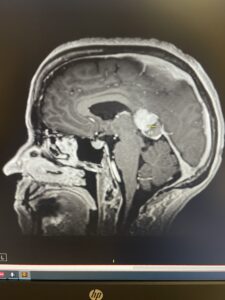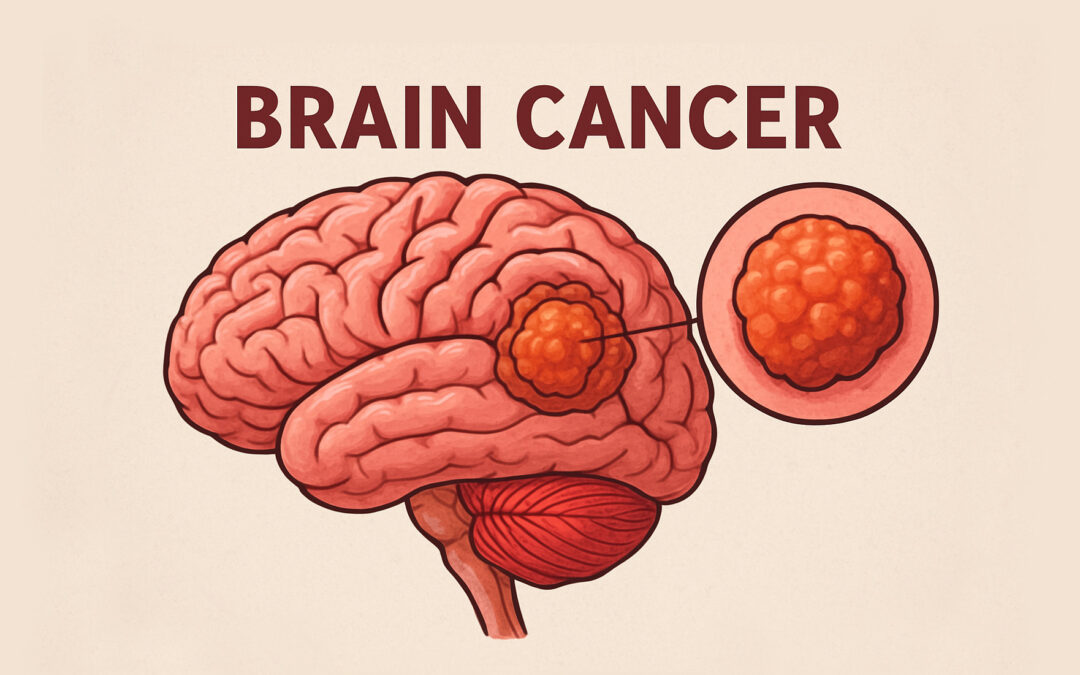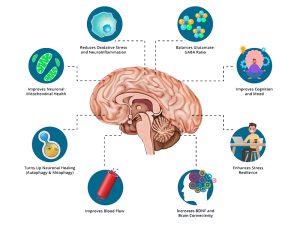Content Warning:
Spoiler Alert of Brain Cancer
It’s been a wild ride since December 3, 2023, when I scribbled in my journal: “Sitting at Mayo, expecting a brain tumor diagnosis.” In those early days, my thoughts were simple. When your brain’s a mess, articulating what’s happening is tough. But for caretakers of someone who seems impaired, trust me: we hear everything. I heard my husband mumbling about my outbursts, the doctor saying, “That doesn’t make sense,” and me, unable to clarify.

Two days later, on December 5, 2023, I journaled:
The tumor was inoperable but treatable. Chemotherapy could stop its progression. We awaited pathology reports.
Countless tests—MRIs, PET scans, biopsies, blood draws—led to the diagnosis: Primary CNS DLBCL—Central Nervous System Diffuse Large B-Cell Lymphoma. Grok, an AI assistant, summarizes: It’s a rare (1,500–1,700 cases yearly), aggressive lymphoma, treated with methotrexate. Five-year survival is 30–50%.
The prognosis felt bleak, but I was relieved—so relieved—it wasn’t Alzheimer’s, unlike my mom and five aunts. It explained my struggles: botched recipes, car crashes, hallucinations. I’d watched my parents die—Alzheimer’s, Parkinson’s—and vowed I’d rather drop dead than linger in a nursing home, medicated into oblivion.
My husband, Tim, faced the awful choice—guided by experts in a life-or-death rush. On November 27, 2023, after a family intervention—Tim and my stepson, Andrew, all but carrying me to Mayo—I arrived disoriented, albeit clearer from antibiotics started days earlier for a chronic dental infection, battled with quarterly visits for three decades. Over 13 days, Mayo was my universe: MRIs, CT scans, brain biopsy, spinal taps, EEGs, blood draws. Antibiotics tackled the infection; steroids calmed brain inflammation. It made sense—clear the infection, shrink the swelling and stabilize the chaos.
By December 8, methotrexate began, a Primary CNS DLBCL standard, but the protocols stopped making sense to me. On December 18, I dug into PubMed, emailing Dr. Mrugala a study on titanium implant neurotoxicity and CNS Lymphoma1, suspecting my 2011 dental implant. No reply. On December 21, a facial CT scan—likely from my complaints—went nowhere. When I demanded a titanium blood test, a resident shrugged, “What would we do with that? We don’t do teeth.” In my foggy mind, I thought, “Can’t you see the connection between my lymph system and my inflamed gums, inches away?
During downtime, I reflected on vomiting incidents—first beer, first cigarette, and years ago, nearly puking entering a church I’d run from, a gut-punch rejection of something that felt wrong. My body knew poison, chemical or not. On my first day of at-home chemotherapy, I took temozolomide (Temodar) without anti-nausea meds—thinking I could tough it out. Within minutes, I was lying on the bathroom floor or hugging the toilet, vomiting.
The tile’s coolness eased the retching; my thoughts spiraled: I can’t do this. Why didn’t I call friends with cancer? I suck for being a bad friend. Thank God for temozolomide. I’d been giving thanks for everything, good or bad. Days later, an epiphany: RAT BASTARDS! Anti-nausea pills masked temozolomide’s poison. I researched and learned temozolomide—unproven for lymphoma, meant for glioblastoma, with claims it could “get past the blood-brain barrier”—could wreck my lymphocytes. That dissolving sensation in my head from that chemotherapy week? I’d feel it again 72 hours into my first fast to induce neural autophagy.
I stopped temozolomide after that week, but methotrexate lingered. On January 17, 2024, I arrived for my fourth in-hospital methotrexate, defiant, wanting my teeth fixed. My husband, terrified of losing me, insisted I listen to the experts. Reluctantly, I went but refused anti-nausea meds to let my body react. Dr. Walker, a young resident, implied I’d lost my mind, suggesting my cognitive functions were impaired. I challenged him to check my recent cognitive tests. I didn’t want to be tossed out of Mayo or “divorced” from Dr. Mrugala, one of the world’s best. What if I was wrong about my teeth and the tumor returned? I’d lose precious time.
So, I let my guard down and shared my vomiting insights—cigarettes, alcohol, that church moment. An hour later, the neuro-oncology team gathered, eyeing me like a wild card: Dr. Mrugala, head of neuro-oncology, smiled curiously; the floor doctor, a sharp Jewish woman in her 30s, insisted I not puke on her floor; Dr. Walker stood with them, having listened. I held up my “FEAR NOT” vision, my mantra since November:
“WE are fearfully and wonderfully made2.”

“And F*!# cancer!

“It’s my teeth—you don’t see it? One last methotrexate, then I fix my teeth.” On January 21, 2024, I stopped all chemo. I ordered a $119 titanium blood test through Request A Test3, which confirmed traces of titanium, though nothing else. On February 2, 2024, my dentist confirmed an ongoing infection in my problematic tooth, fueling my resolve. My next essay, “Power in the Blood,” reveals how I stumbled into healing through breath.
Notes
- Shelly et al., “Potential neurotoxicity of titanium implants: Prospective, in-vivo and in-vitro study,” Biomaterials, 2021 (pubmed.ncbi.nlm.nih.gov/34352627/).
- Adapted from Psalm 139:14, New International Version: “I praise you because I am fearfully and wonderfully made” (biblegateway.com/passage/?search=Psalm+139%3A14&version=NIV).
- Request A Test is an online service for ordering lab tests, including titanium blood tests (requestatest.com).

Linda Wulf
Linda Wulf is a cancer rebel, advocate, and independent researcher. Diagnosed in 2023 with primary CNS lymphoma, she declined standard chemotherapy and pursued a root-cause, immune-supporting path. Twenty-three months cancer-free via root-cause approach.










